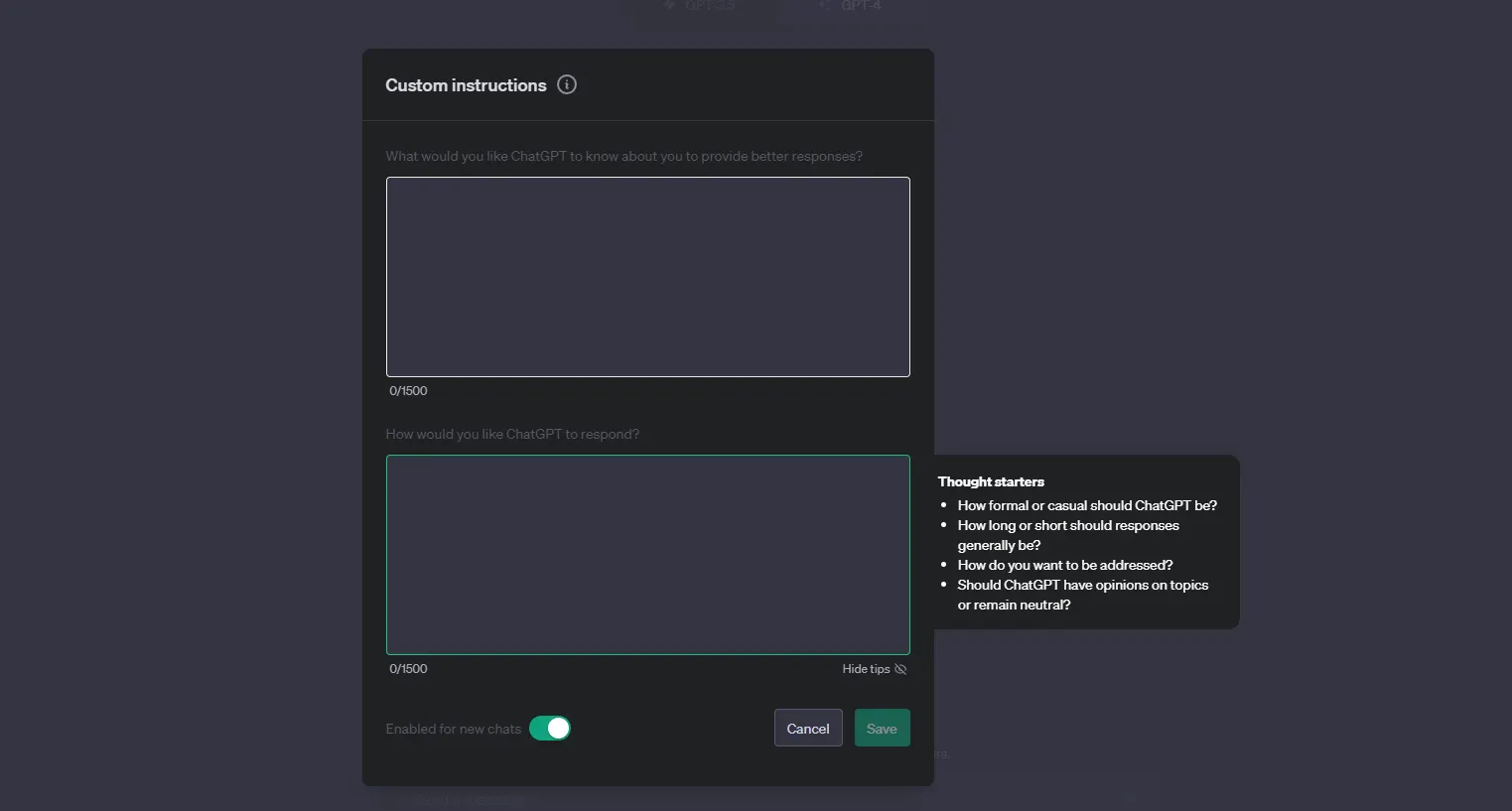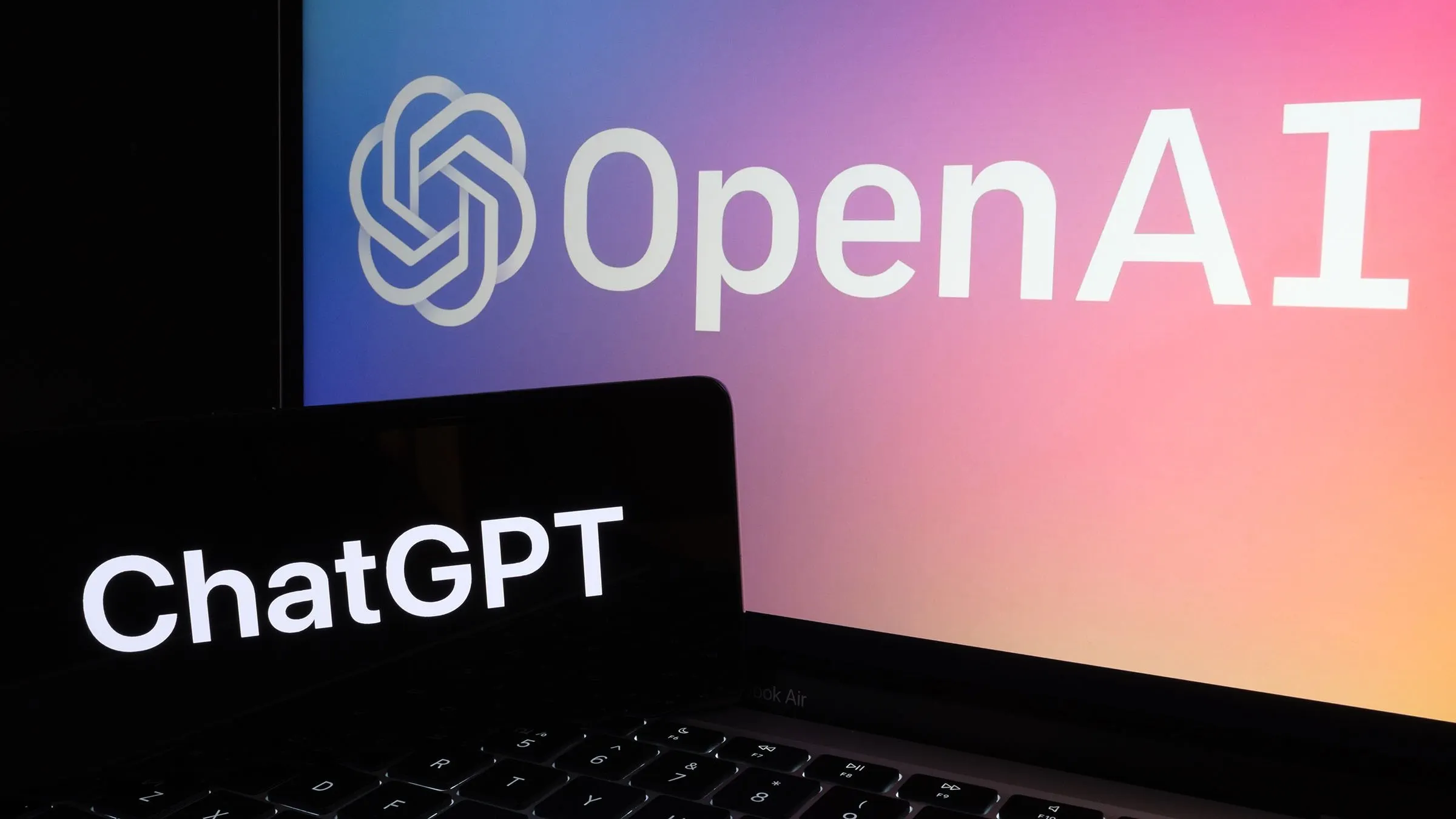ChatGPT users can now add customization to their AI chatbot responses, OpenAI said on Thursday, giving them the ability to cater the text replies to their particular needs and preferences.
The new feature, called "custom instructions," lets users set parameters for the responses they receive from ChatGPT. It's currently only available for Plus subscribers, but is set to roll out broadly "soon," OpenAI CEO Sam Altman tweeted today.
custom instructions is just one small step towards more personalized AI, but a surprisingly fun/useful one. available for plus users now, and all users soon:https://t.co/kwHX80Zc6u
— Sam Altman (@sama) July 20, 2023
Some of the suggested "thought starters" that OpenAI recommended alongside the announcement include the user's location, work, hobbies, and goals.
After entering this information, users can set parameters like the formalness of the response, how the chatbot should refer to the user, and how opinionated ChatGPT should be in its responses.

Some of the parameters that early testers shared, OpenAI said, included country-specific legal references, using the same coding format consistently, customizing ChatGPT to respond based on the expertise level set by the user, and using character sheets to maintain a consistent understanding of characters' ongoing interactions.
"ChatGPT will consider your custom instructions for every conversation going forward," OpenAI said in an announcement. "The model will consider the instructions every time it responds, so you won’t have to repeat your preferences or information in every conversation."
While having a personalized chatbot experience may seem appealing, companies and legislators have already put restrictions on using ChatGPT due to fears that sensitive or confidential data will be absorbed into its large language model (LLM).
In May, Apple joined fellow tech giant Samsung in prohibiting employees from using ChatGPT at work, citing privacy concerns and the loss of corporate intellectual property stored on third-party servers.
The following month, a memo advised U.S. House of Representative staffers that only the Plus version of ChatGPT was authorized for use, stipulating that staffers not paste blocks of private data into the chatbot and also to make sure that privacy settings are enabled.
OpenAI released a series of privacy updates to ChatGPT in April, including letting users opt out of allowing their data to train ChatGPT, after several countries—including Italy, which for a time briefly banned ChatGPT—raised privacy concerns regarding user data.
If ChatGPT users opt out of having their chat history saved and used for training OpenAI's AI models, then the custom instructions will be disabled.
Another platform allowing a personalized chatbot experience is Perplexity AI, which added a feature called “AI Profiles” to its platform earlier this year and also aims to provide a more bespoke user experience.
When asked for comment, an OpenAI representative pointed Decrypt to its tweet on the update and added nothing further.

